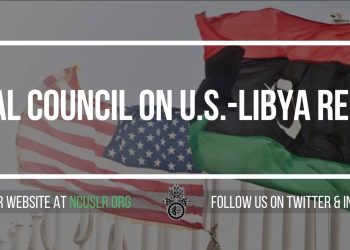![US Ambassador to . . .[restrict]Libya Deborah K Jones](http://www.libyaherald.com/wp-content/uploads/2013/03/Deborah-K-Jones-1-300x208.jpg)
17 February 2015:
Four years after the February 17 Revolution, the security situation in Libya is precarious, with those who would partner with ISIL and other malevolent elements exploiting the country’s political entropy and militia rule to make rapid inroads.
Disruptions to Libya’s oil production, essentially the country’s only source of income, have become so severe that Libya will be broke in 18 months or less, by some counts. The number of Libyans who have fled the country exceeds 2,000,000, according to some sources, while internally displaced number in the hundreds of thousands.
Many have blamed the international community for not doing more to ensure a new Libya got off on the right foot. The reality is that no one — to include the bright and optimistic leaders of Libya’s fledgling transitional government who made clear Libyans wanted no foreign boots on the ground — recognized the depth of the fissures within Libyan society created by 42 years of Qaddafi’s despotic and psychologically damaging rule.
Others now suggest that only a minority of Libyans supported the Revolution, which remains unfinished, with urban Islamists pitted against tribal “azlam-ists,” or those wishing to revert to a Qaddafi-style regime.
That analysis is simplistic. Libya’s biggest obstacle remains the absence of a national unity government equipped to do what governments are expected to do, i.e. ensure equitable access to national assets by their citizens through the establishment of effective security, governance, and enforcement of the rule of law.
Confronting Libya’s enemies – foreign and domestic – will remain impossible without such a government. That is why Libyans must engage in the UN dialogue.
When I first arrived in Tripoli in June 2013, our hopes were high for helping Libyans build a country that would serve as a model of stability and prosperity for North Africa and the Sahel. The US government alone was engaged in the development and implementation of dozens of programs designed to enhance Libya’s security, governance capacity, judicial competence, rule of law, and civil society.
In my first six months there, we signed half a dozen bilateral agreements and supported the eradication of Libya’s chemical weapons stockpile. Our UK, French, Italian and EU partners were equally energetic and determined.
But we soon discovered that an absence of coherence within the body politic stymied our efforts to partner with the government in meaningful ways, with deep resistance to any initiative perceived to give advantage to factions essentially competing for a redistribution of Libya’s national wealth through political dominance in what many perceived to be a “winner take all” environment.
This is not to suggest that ideology has played no role in Libya’s internal conflict, although it is not the defining role that some – particularly external parties – have sought to highlight; Libyans are by and large conservative, Sunni Muslims who share similar values. Labels are unhelpful and misleading.
A more important distinction in Libyan eyes is that between those who support the state, which includes the vast majority of Libyans, and those who do not, to include Ansar al-Sharia, Al Qaeda, and now ISIL. And it is those Libyans who support the state who now need to come together urgently to defeat its enemies.
I witnessed in Geneva what happens when Libyans come together – in a safe environment, free from external pressures and mindful of the challenges facing their country. They complain, they argue, they share their deep hurt, and then these courageous patriots come together and talk about what needs to be done to heal the country and stop the fighting between Libyans.
This is why we continue to support Bernardino Leon’s UN dialogue despite the arguments of those who now insist that the urgency of the fight against ISIL makes the dialogue irrelevant. Because we assess that no one faction can confront alone the challenges facing Libya and create the national consensus that will enable the international community to partner effectively with Libya to establish governance and security and start to build the safe, prosperous country that Libyans deserve.
And this is why it is important that Libyans who love Libya stop quibbling and come to the table. In the words of one brave Libyan now involved in the talks – “Our house has no windows or doors and the Devil has come inside. We need to come together as a family now to remove the Devil.”
It is time for Libyans to realize that only they can build a new Libya; only they can save their country. Those who continue to fight, those who refuse to engage in dialogue, must be sanctioned by the international community – and we are prepared to do that. Because it’s way past time to stand up and fight for Libya.
U.S. Ambassador to Libya Deborah K. Jones contributed this article to the Libya Herald on the occasion of the fourth anniversary of Libya’s 17 February 2011 Revolution. [/restrict]







